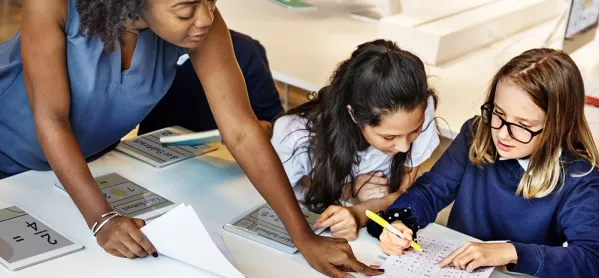Lesson study is a professional development strategy that originated in Japan and China more than 100 years ago. Today, it is used by educators around the world and we believe it could be the missing link needed to transform teacher training and development in the UK.
The aim of lesson study is to find out about teaching through monitoring pupil learning in response to different teaching methods. The form most commonly used in the UK involves jointly-designed research lessons that have been set up to answer specific questions about student learning. Teachers observe students during the lesson and then carry out brief interviews with them afterwards.
We are also aware that lesson study has its critics. They say there is little evidence that it works, and the very fact it has become widely used can mean in some schools it becomes a ritualised process that doesn’t challenge teaching practice. This is something we need to consider.
But does lesson study work in the current climate? A recent international research review showed that much of the research is small-scale and tends to use qualitative data showing positive teacher and student outcomes. There are only a few experimental evaluations comparing lesson study with non-lesson study conditions and very few randomised controlled trials, although some results will be published next year.
And yet hundreds of teachers have told us that using lesson study has helped them to feel more confident in their expertise. The method was one of only three interventions to show a positive effect size in the Department for Education Closing the Gap: test and learn research published in January and it was also endorsed by the recent Carter review of initial teacher training.
The process takes time
So, how can lesson study be used most effectively? Although research lessons are a big part of the process, it is not just about teachers planning, observing and discussing together. To get positive results, the conditions and context are crucial. It takes time - enough time for the three research lessons and the four review and planning meetings required to complete a lesson study cycle. This can be tricky to fit in.
However, some school leaders are now organising their year plans and timetables to plug this kind of professional learning activity right into the heart of their school’s improvement. This prevents regular teaching from being disturbed, encourages teachers to take part, and reveals development needs and triumphs to leaders, which all makes lesson study very good value.
We believe that the benefits are more than worth the time and effort it takes to implement the processes. But in order for the method to be a success, it requires the full cooperation of school leaders to ensure that lesson study is implemented properly.
The World Association of Lesson Studies (WALS) International Conference 2016 will be held from 3-5 September at the University of Exeter. You can find out more here.
Brahm Norwich is a professor at the graduate school of education, University of Exeter. Pete Dudley is honorary general secretary of the World Association of Lesson Studies
Want to keep up with the latest education news and opinion? Follow TES on Twitter and like TES on Facebook

